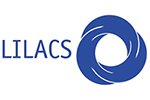ISSN Online: 2177-1235 | ISSN Print: 1983-5175
Showing of 1 until 1 from 1 result(s)
Search for : CARLOS FERNANDO GOYENECHE
Extended and pedicled pectoralis major flap for right orbitofrontal-parietal reconstruction following invasive squamous cell carcinoma resection
ABSTRACT
Introduction: The myocutaneous flap is often used in reconstruction of head and neck defects. However, it is restricted to the middle third of the face. Perforating artery dissection techniques allow further lengthening of the pedicle, thus achieving coverage of the orbitofrontal-parietal region.
Case report: A 63-year-old male with a poorly-differentiated invasive squamous cell carcinoma presented with a final defect of 12.0 × 18.0 cm in the right orbitofrontal-parietal region, with dura mater, frontal sinus, and right upper orbit exposure after resection. We designed a pectoralis major flap, with a cutaneous island equaling the defect in dimensions, in the right parasternal region, from the fourth intercostal space to the subcostal region (extended). The pedicle was sectioned after 4 weeks. The coverage was effective, with no major complications, and a satisfactory aesthetic result.
Conclusion: This flap can be an excellent option for reconstruction of the upper third of the head when there are limitations to microsurgery.
Keywords: Cutaneous neoplasia; Squamous cell neoplasia; Surgical flaps; Myocutaneous flap; Pectoral muscles
RESUMO
Introdução: O retalho miocutâneo de peitoral maior é um dos mais usados na reconstrução de defeitos da cabeça e pescoço, porém com restrição ao terço médio da face. Com técnicas de dissecção de perfurantes, consegue-se alongar mais o pedículo, obtendo coberturas da região orbito-fronto-parietal.
Relato de Caso: Paciente masculino de 63 anos apresentando carcinoma espinocelular invasivo pouco diferenciado, que após sua ressecção cirúrgica apresentou defeito final de 12,0 x 18,0cm na região órbito-fronto-parietal direita com exposição de dura-máter, seio frontal e órbita superior direita. Foi desenhado retalho de peitoral maior com ilha cutânea de dimensões iguais ao defeito na região paraesternal direita, desde o quarto espaço intercostal até a região subcostal (estendido). O pedículo foi seccionado após 4 semanas. A cobertura foi efetiva, sem complicações maiores e resultado estético satisfatório.
Conclusão: Este retalho mostrou ser uma excelente opção para reconstrução do terço superior da cabeça quando existam limitações para a realização de microcirurgia.
Palavras-chave: Neoplasias cutâneas; Neoplasias de células escamosas; Retalhos cirúrgicos; Retalho miocutâneo; Músculos peitorais
 All scientific articles published at www.rbcp.org.br are licensed under a Creative Commons license
All scientific articles published at www.rbcp.org.br are licensed under a Creative Commons license






